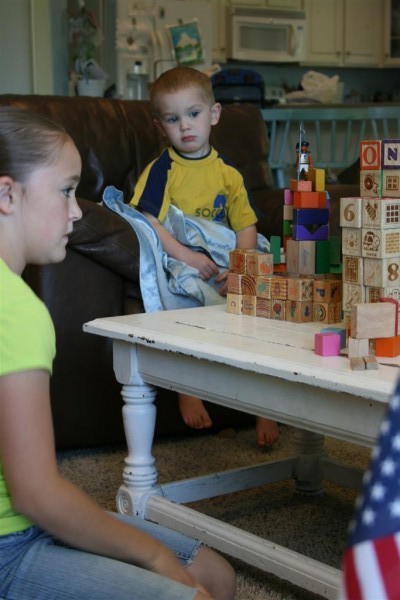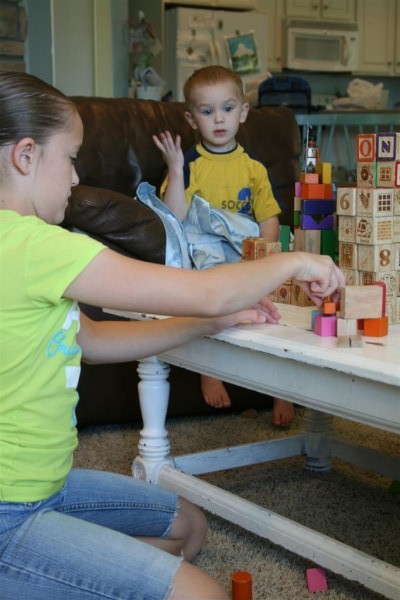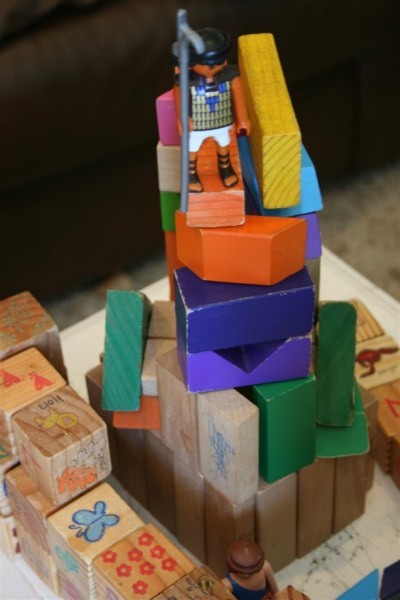July is in full swing at our house. The flags are still out and will remain that way throughout the month. In some ways it feels like summer’s just begun. We’re in that sacred month which is, at last, unscheduled by the world. So much of the year is like a paint by number experience: the lines are all drawn with schedules and commitments and it is only up to us to determine how well we color it in. Summer days are different, like a blank canvas waiting for brush and paint. We’ve got more scheduled activities than I’d prefer, but for the most part we’re rolling with them well and enjoying a lot of down time. I love it.

This week’s report: 79 steps. Works for me.
Highlights:
1. I’m trying hard to edit the THINGS we have in our home. I want to take care of people, not stuff. This week I hit an area in the basement. I think I’m slowly succeeding, for I’m finding more time to play with my children.
2. I made a concerted effort to hold my little ones more. Several times I just sat down and waited to see what would happen. Invariably I ended up with 3 little bodies climbing all over me (literally). It was wonderful.
3. Reading, reading, reading. We’re all doing a lot of it. I had the sweetest experience today with a grouchy four year old and Maurice Sendak’s Where the Wild Things Are .
4. I resisted the urge to crack down on the state of the toy room, and am glad I did. As the week wore on I found that my children fell into a heartwarming play experience together. With their ages spanning from baby to teenager, it is uncommon now that they all find a meeting place, but somehow that happened this week. I wouldn’t trade it for the cleanest toy room in the world.
5. I spent an evening watching my daughter’s soccer practice while the little ones ran in the grass. It was one of those nights when she discovered an instant aptitude for each new drill introduced, and she enjoyed a lot of praise. Not only was it fun to watch her shine in practice, but I also found myself being renewed by observing the evening sun as it cast rays of sunlight across the shining hair and faces of my little ones. I hope never to forget the sight of my daughter sprinting for the sprinklers. The beauty of it made me catch my breath and feel so grateful that I paused to soak it in.
6. In a search for a quote I’d lost, I re-read several of Abigail Adams’ letters. What a treasure they are!
7. As I look back on the week, each day held a particular lesson or insight for me personally and as a mother. I’m particularly grateful for those moments, and grateful that I paused to record them. While some of them will take time to produce real fruit, there is already a feeling of victory in my heart, a fresh reminder of this powerful lesson I pondered early in the week.
I am excited for a new week to begin, and look forward to all the surprises it will hold. I hope yours is great!
Jennifer










